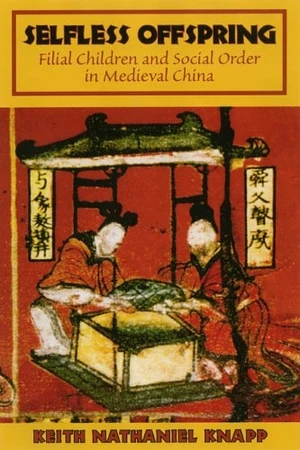Both Western and Chinese intellectuals have long derided filial piety tales as an absurd and grotesque variety of childrenâs literature. Selfless Offspring offers a fresh perspective on the genre, revealing the rich historical worth of these stories by examining them in their original context: the tumultuous and politically fragmented early medieval era (A.D. 100â600). At a time when no Confucian virtue was more prized than filial piety, adults were moved and inspired by tales of filial children. The emotional impact of even the most outlandish actions portrayed in the stories was profound, a measure of the directness with which they spoke to major concerns of the early medieval Chinese elite. In a period of weak central government and powerful local clans, the key to preserving a householdâs privileged status was maintaining a cohesive extended family. Keith Knapp begins this far-ranging and persuasive study by describing two related historical trends that account for the narrativeâs popularity: the growth of extended families and the rapid incursion of Confucianism among Chinaâs learned elite. Extended families were better at maintaining their status and power, so patriarchs found it expedient to embrace Confucianism to keep their large, fragile households intact. Knapp then focuses on the filial piety stories themselvesâtheir structure, historicity, origin, function, and transmissionâand argues that most stem from the oral culture of these elite extended families. After examining collections of filial piety tales, known as Accounts of Filial Children, he shifts from text to motif, exploring the most common theme: the "reverent care" and mourning of parents. In the final chapter, Knapp looks at the relative burden that filiality placed on men and women and concludes that, although women largely performed the same filial acts as men, they had to go to greater extremes to prove their sincerity.
Price history
▲0.04%
Mar 9, 2022
€24.22
Oct 25, 2021
€24.22

